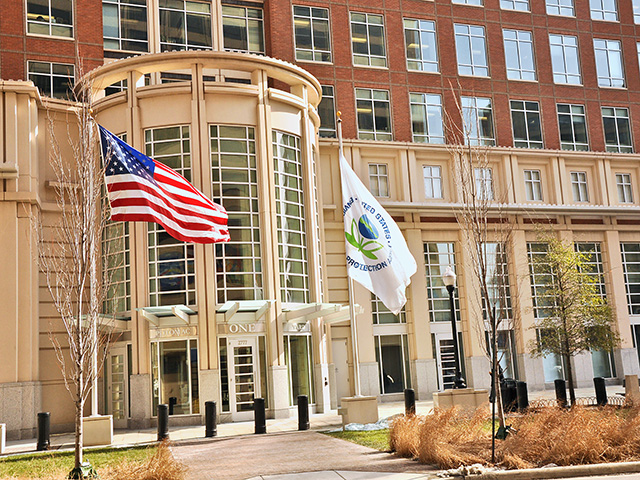Glyphosate, Atrazine Evaluations Released
EPA Says Glyphosate, Atrazine Likely to Adversely Affect Endangered Species
LINCOLN, Neb. (DTN) -- EPA finalized its biological evaluations on glyphosate, atrazine and simazine, finding all three herbicides are "likely to adversely affect" certain species listed under the Endangered Species Act and their "designated critical habitats."
The agency released the biological evaluations after its regular business hours on Friday, stating in a news release, "These evaluations encompass all registered uses and approved product labels for pesticide products containing these three herbicides."
EPA said the "likely to adversely affect" determination means the agency "reasonably expects" that "at least one individual animal or plant, among a variety of listed species, may be exposed to the pesticide at a sufficient level to have an effect, which will be adverse."
This is a process all pesticides must now go through, as required by the Endangered Species Act. These chemicals are among the first ag pesticides to undergo these evaluations.
Now EPA sends its evaluations to the U.S. Fish and Wildlife Services and National Marine Fisheries Service, who will develop their own biological opinions based on EPA's findings. If the services find that these chemicals put an endangered species or critical habitat in "jeopardy," they will work with EPA to "propose additional protections," the agency said. That could come in the form of new label and use restrictions on these three chemicals.
Not all species or habitats identified in the evaluation as at risk from these glyphosate, atrazine or simazine will necessarily require major changes to the registrations of these three chemicals, the EPA noted.
P[L1] D[0x0] M[300x250] OOP[F] ADUNIT[] T[]
"The (likely to adversely affect) LAA threshold for a (biological evaluation) BE is very sensitive because the likely 'take' of even one individual of a species which includes unintentional harm or death, triggers an LAA determination," the EPA explained in its release. "This is the case even if a species is almost recovered to a point where it no longer needs to be listed."
The agency first proposed an interim registration on glyphosate in April 2019 and accepted public comments until September 2019. EPA reapproved an interim registration of glyphosate in January 2020. The Rural Coalition, Organizacion an California de Lideres Campesinas, Farmworker Association of Florida, Beyond Pesticides and the Center for Food Safety filed a petition for review in March 2020. Those groups asked a federal court to vacate the registration.
Most recently, EPA released a biological evaluation of glyphosate's potential effect on endangered species and critical habitats, finding it was "likely to adversely affect" 1,676 listed species and 759 critical habitats, the vast majority of the species and habitats the agency considered. See DTN's story on that draft evaluation here: https://www.dtnpf.com/….
Some changes in glyphosate's commercial use are already underway. In July 2021, Bayer announced a five-point plan to manage and resolve future litigation risk from glyphosate-based Roundup. Among the moves, Bayer announced it would stop selling Roundup products for residential use starting in 2023.
When it comes to atrazine, the Biden administration is currently reviewing the Trump administration's past decisions on atrazine's registration, staying a federal lawsuit against the agency in the meantime. See more here: https://www.dtnpf.com/….
Environmental groups have lobbied for atrazine to be banned entirely, based on concerns about human health risks and environmental problems, particularly concerning water quality. Syngenta is the registrant and primary manufacturer of atrazine.
In early 2021, atrazine and simazine registrants requested to voluntarily prohibit use of the chemicals in Hawaii, Alaska and the U.S. territories and to delete certain uses from their product registrations.
"Registrants took this action to reduce the potential overlap between where these pesticides can be used and listed species and their critical habitats," EPA said.
Read EPA's biological opinions:
Todd Neeley can be reached at todd.neeley@dtn.com
Follow him on Twitter @DTNeeley
(c) Copyright 2021 DTN, LLC. All rights reserved.






